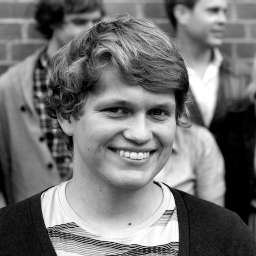There’s no question that Puccini’s Madama Butterfly is a popular opera. At the Norwegian Opera and Ballet, Stephen Langridge’s World War 2 production is now up for its fourth revival since 2012 and, with over 30 performances, is by far the most-played opera production in the new opera house. Langridge’s staging of Puccini’s exotic tragedy has much to commend it, but with four revivals in as many seasons, what might have started out as actual sentiment, now seems coldly manipulative.
Langridge sets his production of Butterfly in the aftermath of the Second World War. While setting the opera in the late 1940s rather than the original 1904 setting certainly puts it closer to our time and perhaps makes it more recognisable, it does little else. The production is played as a retrospective of sorts, Butterfly and Pinkerton’s now adult son, played by Randolf Walderhaug, watching the tragic story of his parents unfurl through an old slide projector. He wanders around the edges of the stage, silently observing for the first two acts whilst exhibiting varying degrees of distress, before actively taking part in the third and final act. He manages to not be overly distracting, while at the same time adding another layer of poignancy to the story.
It is in matters of poignancy where this production truly succeeds. Faced with this most emotionally manipulative of Puccini’s operas, Langridge at times manages to make the most heart-wrenching moments even more devastating. He stages the second act Intermezzo as a meeting of Cio-Cio-San and her in-laws, a truly moving reminder of what will never be. Langridge’s tragic sensibility in this production smacks of even more manipulation, but he pulls it off, as long as you don’t think too much about it as it’s happening. Still, some moments come off as strangely cold, most notably the rather rushed ending, with a remarkably unceremonious ceremonial suicide.
Despite the staging's inconsistencies, the singing was surprisingly good. Making her house debut as Cio-Cio-San was Jung Nan Yoon, with a huge, bright soprano and a forceful lower register. While her first act entrance wasn’t the clearest in terms of diction and tonal precision, she soon warmed up, both vocally and dramatically. Her characterisation in the first act bordered on a caricature of a nervously giggling Japanese girl, but in the following two acts she grew considerably in tragic maturity. Likewise, her voice only seemed to grow in size, with increasingly fearless vocalism. She would fling out gloriously loud high notes before descending just as forcefully down to the very bottom of her register.
After a decidedly underpowered Calaf in last season’s puzzling Turandot, I was not quite sure what to expect from Henrik Engelsviken's Pinkerton. Luckily, the shorter role of the American naval lieutenant fits him decidedly better than the Prince of Tartary. It was by no means the most subtle performance, with Engelsviken generally singing far louder than was strictly called for, and his acting mostly restricted to the occasional frowning gesture. Still, despite the unrelentingly high volume, his voice sounded gloriously free and open.
In his role debut as Sharpless, Espen Langvik was on more than one occasion overpowered by the orchestra, more the fault of the rather too loud orchestra than Langvik himself. His handsome baritone tended towards the somewhat woolly in his very bottom register, but the middle and top were wonderfully burnished. His portrayal of the American consul was one always aware of the reprehensibility of Pinkerton’s, yet too afraid to let Pinkerton know properly. As Suzuki, Ingebjørg Kosmo sang and acted with motherly care, her plummy mezzo slightly shaky on the top.
Conductor Daniele Callegari seemed almost hell-bent on counteracting the schmaltz of both Langridge’s production and Puccini’s score. While there were some gloriously surging moments, Callegari never dwelt, relentlessly pushing the music on. With all the focus on speed, dynamic nuances didn’t always come through and the general feeling was one of general loudness.
It is luckily saved by a truly excellent cast, but Langridge’s Madama Butterfly, while a perfectly good production, never quite takes flight. With the 40th performance in four years looming on the horizon, maybe it’s time to let Butterfly rest for a while.




